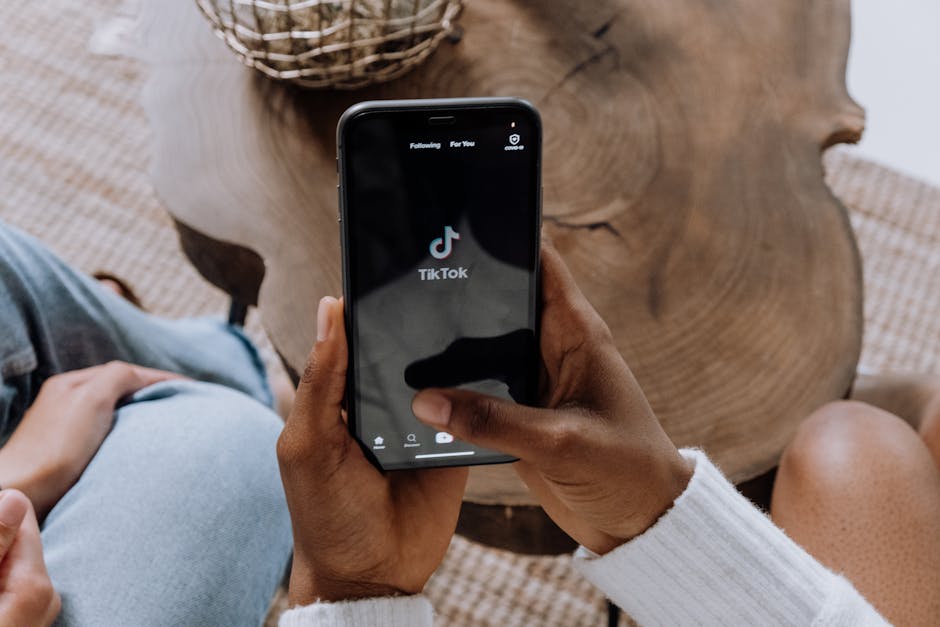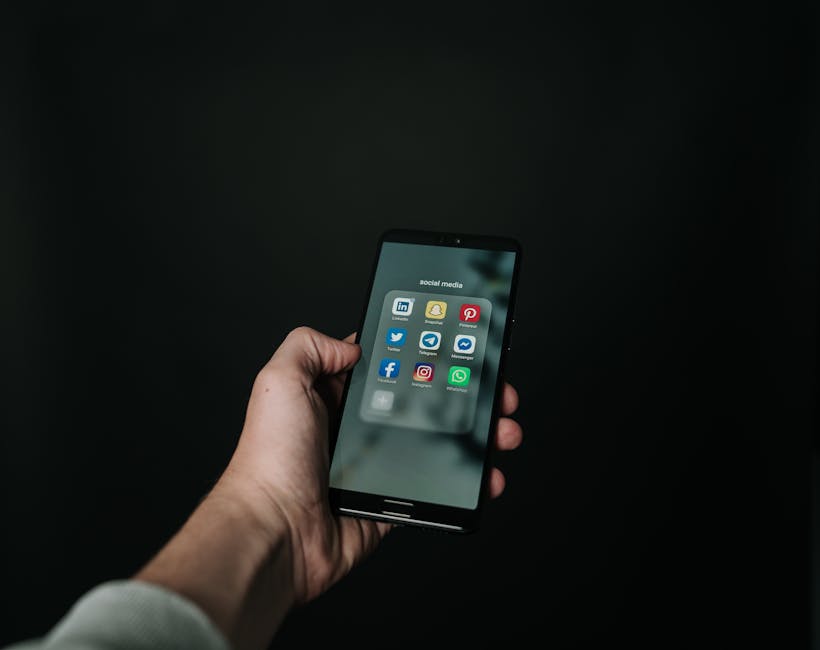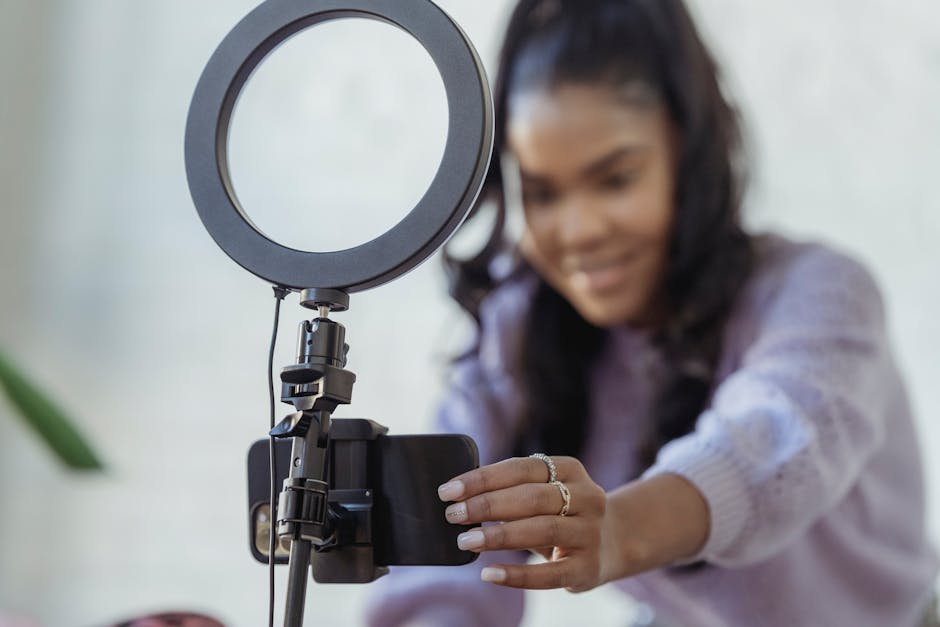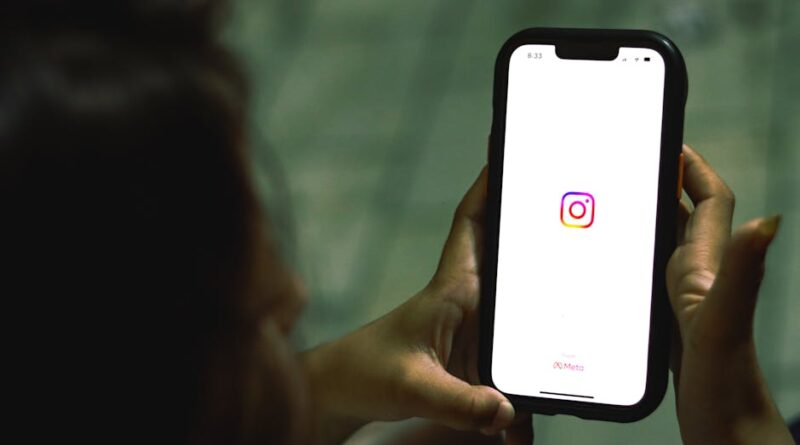Unraveling the Influence of Media on Social Connections
Welcome to the digital age, where our lives are intricately intertwined with various forms of media. From social media platforms to traditional newspapers, the influence of media on social connections is undeniable. In a world where communication has taken on new dimensions, it is essential to understand how media shapes our interactions, relationships, and sense of community.
Have you ever stopped to think about how media affects the way we connect with others? How does the constant stream of information impact our social circles, friendships, and even our sense of self? In this article, we will delve deep into the intricate relationship between media and social connections, exploring the various ways in which media influences our interactions and relationships.
The Evolution of Media and Social Connections

Media has played a pivotal role in shaping human relationships throughout history. From the invention of the printing press to the rise of social media platforms, each technological advancement has had a profound impact on how we connect with one another. In the past, people relied on handwritten letters and face-to-face interactions to maintain relationships. However, with the advent of telecommunication and the internet, the way we communicate has undergone a radical transformation.
Today, we can connect with anyone, anywhere in the world, at the touch of a button. Social media platforms like Facebook, Twitter, and Instagram have become the new virtual meeting places, where we share our thoughts, experiences, and emotions with friends, family, and even strangers. These platforms have not only revolutionized the way we communicate but have also redefined the very concept of social connections.
The Influence of Social Media on Relationships

Social media has undoubtedly changed the way we form, maintain, and even end relationships. With the ability to connect with a vast network of people instantaneously, social media has made it easier to stay in touch with friends and family, regardless of geographical barriers. However, this constant connectivity comes with its own set of challenges.
Studies have shown that excessive use of social media can lead to feelings of loneliness, jealousy, and even depression. The curated nature of social media profiles often leads to unrealistic comparisons and a sense of inadequacy among users. Moreover, the prevalence of cyberbullying and online harassment has raised concerns about the impact of social media on mental health and well-being.
On the other hand, social media has also been instrumental in fostering new relationships and communities. Online support groups, interest-based forums, and virtual events have provided individuals with a sense of belonging and connection, especially during times of physical isolation. The ability to share experiences, seek advice, and express oneself freely has brought people together in ways previously unimaginable.
The Role of Traditional Media in Social Connections

While social media often takes center stage in discussions about media influence, traditional forms of media such as television, radio, and newspapers continue to play a significant role in shaping social connections. News broadcasts, documentaries, and talk shows have the power to spark conversations, inspire movements, and unite people around shared causes.
Traditional media also serves as a platform for storytelling, allowing individuals to share their experiences and perspectives with a broader audience. Through films, books, and music, we are able to connect with others on a deeper emotional level, fostering empathy, understanding, and a sense of community.
Moreover, traditional media can act as a bridge between different generations, cultures, and ideologies. By providing a common platform for dialogue and exchange, media has the potential to break down barriers, challenge stereotypes, and promote mutual respect and tolerance.
The Influence of Media Bias on Social Connections

One of the most significant challenges posed by media influence is the issue of bias. Whether intentional or unintentional, media bias can shape our perceptions, attitudes, and beliefs about others. In an era of fake news and misinformation, it is essential to critically assess the sources of information we consume and the impact they have on our social connections.
Studies have shown that exposure to biased or one-sided media content can lead to polarization, distrust, and conflict among individuals and communities. The echo chamber effect, where people are exposed only to information that aligns with their existing beliefs, can reinforce biases and hinder meaningful dialogue and understanding.
To counter the influence of media bias on social connections, it is crucial to seek out diverse perspectives, engage with credible sources, and cultivate critical thinking skills. By fostering an environment of open-mindedness, empathy, and respect, we can create a more inclusive and harmonious society, where media serves as a tool for connection rather than division.
Media Literacy and Social Connections
Amidst the proliferation of media content in the digital age, media literacy has emerged as a critical skill for navigating the complex landscape of information and communication. Media literacy encompasses the ability to access, analyze, evaluate, and create media in various forms, empowering individuals to make informed decisions and participate actively in society.
By developing media literacy skills, individuals can become more discerning consumers of media, capable of identifying biases, recognizing propaganda, and distinguishing between fact and opinion. Media literacy also enables individuals to create and share their own media content responsibly, contributing to a more diverse and democratic media ecosystem.
Moreover, media literacy fosters critical thinking, empathy, and communication skills, which are essential for building strong social connections and understanding diverse perspectives. By promoting media literacy education in schools, workplaces, and communities, we can equip individuals with the tools they need to navigate the digital world responsibly and engage meaningfully with others.
The Impact of Influencers on Social Connections
In recent years, the rise of social media influencers has reshaped the way we perceive and interact with media. Influencers, who are individuals with a large following on social media platforms, have the power to shape trends, influence consumer behavior, and even impact societal norms and values.
By collaborating with brands, sharing personal stories, and engaging with their audience, influencers have the ability to create authentic connections with their followers, fostering a sense of community and belonging. However, the influence of influencers is not without its controversies.
Critics argue that influencers often promote unrealistic standards of beauty, materialism, and lifestyle, leading to feelings of inadequacy and low self-esteem among their followers. The commercialization of social media, where influencers endorse products and services for financial gain, has raised concerns about the authenticity and integrity of influencer content.
Despite these challenges, influencers have the potential to leverage their platforms for social good, raising awareness about important issues, promoting diversity and inclusion, and mobilizing their followers to take action. By using their influence responsibly and ethically, influencers can foster positive social connections and inspire meaningful change in society.
Conclusion
As we navigate the complex and ever-evolving landscape of media and social connections, it is essential to reflect on the profound impact that media has on our interactions, relationships, and sense of community. From social media platforms to traditional media outlets, each form of media plays a unique role in shaping the way we connect with others.
By understanding the influence of media on social connections, we can harness the power of communication to bridge divides, foster empathy, and cultivate meaningful relationships with those around us. Whether through media literacy education, critical engagement with media content, or responsible use of social media platforms, we have the agency to shape the future of media and its impact on our social connections.
As we embark on this journey of exploration and discovery, let us remember the importance of empathy, respect, and understanding in building strong social connections that transcend the boundaries of media and technology. Together, we can create a more connected, inclusive, and compassionate society where media serves as a catalyst for positive change and meaningful connections.




